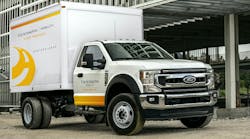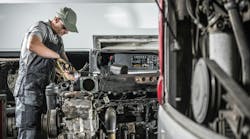The longer you keep your trucks the lower the total cost of ownership, right? That’s not necessarily true for a couple of reasons.
Newer assets tend to be more fuel efficient than older ones. Truck makers have made great strides, aided by government regulations, to make sure today’s trucks get more miles out of a gallon of diesel fuel. And there are now a lot of add-in devices that can make the base truck even more efficient.
There is also the maintenance and repair piece to consider. Trucks consume more parts and need more maintenance as they age. You may have to shorten the time between PM service appointments as your assets age in order to ensure they don’t break down on the road. A truck that is in the shop is not making you any money. Often, despite your best maintenance efforts, older trucks will break down resulting in tow costs, expensive repairs and angry drivers.
Determining the right time to trade an asset in can be tricky. Do it too soon and you increase your total cost of ownership. Keep it too long and you also increase your total cost of ownership. It’s a lose-lose proposition.
The key to knowing the exact right time to retire an asset comes from analyzing a variety of factors:
- The initial purchase price of the current asset
- The initial purchase price of the new asset
- The fuel efficiency of the current asset
- The fuel efficiency of the new asset
- The cost to maintain (and repair) the current asset
- The cost to maintain the new asset
- The number of breakdowns between PMs
- The cost of downtime
- The value of the current asset on the used truck market
- Driver satisfaction with the current asset
- Changes in your operation
- Upcoming legislation that will impact your operation
Careful analysis of all these factors, combined with what you have set as your normal trade cycle, should help guide your asset retirement decisions.
Probably the trickiest piece is accurately assessing the cost of downtime — which falls into the cost to maintain and repair bucket. It is important to include hard cost like the cost to tow the vehicle, the cost of a substitute vehicle as well as the soft costs like driver satisfaction and customer goodwill.
There is no one right answer on the right time to retire an asset. For some fleets it is three years, for others five, and for others it may be as many as 12 years.
Gathering and analyzing all the data available to you should give you confidence in your decision, especially when you look at that data on an asset-by-asset basis.
By doing that you win, whether you keep the asset or trade it for something new.


